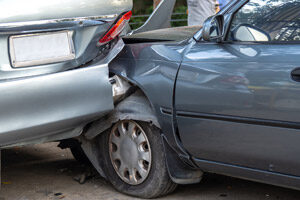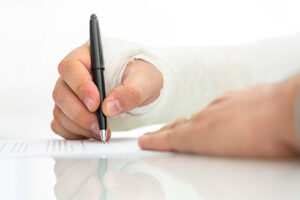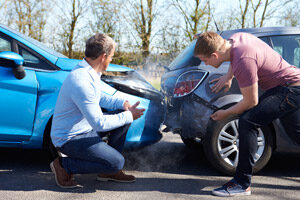Experienced Attorney. Personal Attention. Proven Results.

The selection methodology for this award can be found HERE. No aspect of this advertisement has been approved by the Supreme Court of New Jersey.

The American Institute of Personal Injury Attorneys designates the 10 Best personal injury lawyers in each state and has included Howard D. Popper on its list as a high verdict & settlement winner. The selection methodology for this award can be found HERE. No aspect of this advertisement has been approved by the Supreme Court of New Jersey.

The American Institute of Personal Injury Attorneys designates the 10 Best personal injury lawyers in each state and has included Howard D. Popper on its list for New Jersey. The selection methodology for this award can be found HERE. No aspect of this advertisement has been approved by the Supreme Court of New Jersey.

The American Institute of Personal Injury Attorneys designates the 10 Best personal injury lawyers in each state and has included Howard D. Popper on its list for New Jersey. The selection methodology for this award can be found HERE. No aspect of this advertisement has been approved by the Supreme Court of New Jersey.

The Million Dollar Advocates Forum is pleased to announce that attorney Howard D. Popper has been certified as a life member of Million Dollar Advocates Forum. The selection methodology for this award can be found HERE. No aspect of this advertisement has been approved by the Supreme Court of New Jersey.

NTL Top 100 – Howard D. Popper is a member of the National Trial Lawyers 100, an invitation-only organization of 100 lawyers from each state who meet stringent qualifications as trial lawyers. The selection methodology for this award can be found HERE. No aspect of this advertisement has been approved by the Supreme Court of New Jersey.

NTL Top 100 – Howard D. Popper is a member of the National Trial Lawyers 100, an invitation-only organization of 100 lawyers from each state who meet stringent qualifications as trial lawyers. The selection methodology for this award can be found HERE. No aspect of this advertisement has been approved by the Supreme Court of New Jersey.

The selection methodology for this award can be found HERE. No aspect of this advertisement has been approved by the Supreme Court of New Jersey.

NTL Top 100 – Howard D. Popper is a member of the National Trial Lawyers 100, an invitation-only organization of 100 lawyers from each state who meet stringent qualifications as trial lawyers. The selection methodology for this award can be found HERE. No aspect of this advertisement has been approved by the Supreme Court of New Jersey.

NTL Top 100 – Howard D. Popper is a member of the National Trial Lawyers 100, an invitation-only organization of 100 lawyers from each state who meet stringent qualifications as trial lawyers. The selection methodology for this award can be found HERE. No aspect of this advertisement has been approved by the Supreme Court of New Jersey.
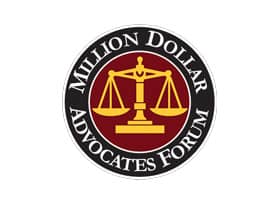
The Million Dollar Advocates Forum is pleased to announce that attorney Howard D. Popper has been certified as a life member of Million Dollar Advocates Forum. The selection methodology for this award can be found HERE. No aspect of this advertisement has been approved by the Supreme Court of New Jersey.

The Million Dollar Advocates Forum is pleased to announce that attorney Howard D. Popper has been certified as a life member of Million Dollar Advocates Forum. The selection methodology for this award can be found HERE. No aspect of this advertisement has been approved by the Supreme Court of New Jersey.

The American Institute of Personal Injury Attorneys designates the 10 Best personal injury lawyers in each state and has included Howard D. Popper on its list for New Jersey. The selection methodology for this award can be found HERE. No aspect of this advertisement has been approved by the Supreme Court of New Jersey.
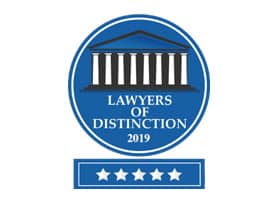
The selection methodology for this award can be found HERE. No aspect of this advertisement has been approved by the Supreme Court of New Jersey.
Happy Halloween!
-
October 31, 2018
-
by Howard Popper
-
What is PIP and How Does It Work in New Jersey?
-
October 23, 2018
-
by Howard Popper
In the aftermath of a motor vehicle accident, one of the first things you’ll typically do is get information about the at-fault party’s insurance provider. That’s not so that you can file a claim directly with their insurer—that’s not how it w… [Read more…]
- Filed Under: Motor Vehicle Accidents
- Tagged With: motor vehicle accidents
-
What Kind of Disability Benefits Can You Expect When You File a Workers’ Compensation Claim?
-
October 12, 2018
-
by Howard Popper
In the aftermath of a work-related injury in New Jersey, you may have mounting expenses and little or no income. It’s important to know what types of disability benefits pursuant to a New Jersey workers’ compensation filing.
Workers’ Compensati… [Read more…]- Filed Under: Personal Injury, Workers Compensation
- Tagged With: Personal Injury
-
Third Party Responsibility in Motor Vehicle Accidents
-
October 3, 2018
-
by Howard Popper
In an earlier blog, we looked at a couple of situations where a person not driving a motor vehicle could be found liable for injuries suffered in a crash involving that vehicle: where the driver was in the course of employment at the time of the… [Read more…]
- Filed Under: Motor Vehicle Accidents
- Tagged With: motor vehicle accidents
-
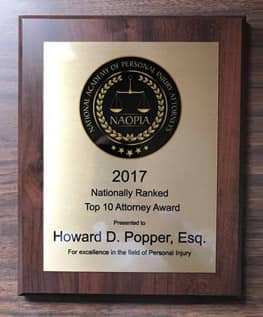
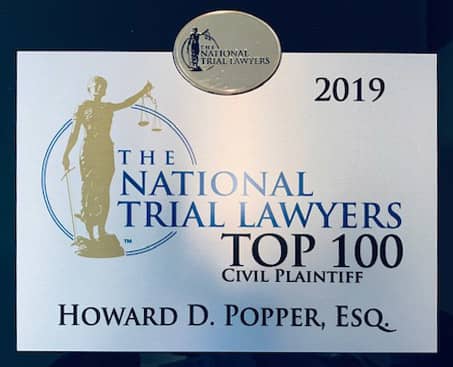

Categories
- Animal-Related Injuries
- Auto Accidents in New Jersey
- Auto Insurance Rates
- Automobile Collision
- Bicycle accidents
- Bus Accidents
- Car Accidents
- Car Accidents in New Jersey
- Civil Rights
- Class Actions
- Construction Injuries
- Construction Site Accident Injuries
- Construction Site Accidents
- Construction Site Injuries in New Jersey
- Criminal
- Criminal Defense
- Damages in a Motor Vehicle Accident Lawsuit
- Dangerous Products
- Defective Medical Devices
- Defective Products
- Disability Claims
- Disorderly Persons
- Dog Bite
- Dram Shop Liability
- DWI
- Electric Scooter Accident Injuries
- Ethics
- Fire / Burn Hazard
- Fraud
- Guns
- Handguns
- Howard Popper
- Liquor Liability Injuries
- Mass Torts
- Mass Transit Accidents
- Medical Malpractice
- Medical Malpractice Claims
- Motor Vehicle
- Motor Vehicle Accident Claims
- Motor Vehicle Accident Injury
- Motor Vehicle Accident Injury Claims
- Motor Vehicle Accidents
- Motor Vehicle Accidents in New Jersey
- Motorcycle Accidents
- Municipal Court
- New Jersey Auto Accident Claims
- New Jersey Car Accident Injury Claims
- New Jersey Construction Accidents
- New Jersey Construction Site Accidents
- New Jersey Dog Bite Claims
- New Jersey Medical Malpractice Claims
- New Jersey Motor Vehicle Accident Claims
- New Jersey Motor Vehicle Accidents
- New Jersey Motor Vehicle Claims
- New Jersey Motorcycle Accidents
- New Jersey Personal Injury Attorneys
- New Jersey Personal Injury Claims
- New Jersey Personal Injury Lawsuits
- New Jersey Personal Injury Trials
- New Jersey Product Liability Claims
- New Jersey Slip and Fall Claims
- New Jersey Traffic Accident Claims
- New Jersey Truck Accidents
- New Jersey Workers’ Compensation Claims
- New Jersey Workplace Accidents
- New Jersey Workplace Injury Claims
- New Jersey Wrongful Death Claims
- NJ Prosecutor
- NJ Supreme court
- Nursing Home Abuse / Neglect
- Pedestrian Accidents
- Personal Injury
- Personal Injury Claims
- Personal Injury Claims in New Jersey
- Personal Injury in New Jersey
- Personal Injury Trials
- Pharmacy Errors
- PIP
- Premises Liability
- Premises Liability in New Jersey
- Press Release
- Product Liability
- Property Damage
- Recalls
- Same Sex Marriage
- Serious & Catastrophic Injury
- Slip and Fall Accidents
- Social Security Administration
- Supreme Court
- The Different Standards for Liability for Personal Injury
- Traumatic Brain Injury
- Truck Accidents
- Uncategorized
- Upcoming Events
- Work-Related Accidents in New Jersey
- Workers Compensation
- Workers’ Compensation in New Jersey
- Workplace Accidents
- Workplace Injuries
- Wrongful Death
Archives
- July 2025
- June 2025
- May 2025
- April 2025
- March 2025
- February 2025
- January 2025
- December 2024
- November 2024
- October 2024
- September 2024
- August 2024
- July 2024
- June 2024
- May 2024
- April 2024
- February 2024
- December 2023
- November 2023
- September 2023
- August 2023
- July 2023
- June 2023
- May 2023
- April 2023
- March 2023
- February 2023
- January 2023
- December 2022
- November 2022
- October 2022
- September 2022
- August 2022
- July 2022
- June 2022
- May 2022
- April 2022
- March 2022
- February 2022
- January 2022
- December 2021
- November 2021
- October 2021
- September 2021
- August 2021
- July 2021
- June 2021
- May 2021
- April 2021
- March 2021
- February 2021
- January 2021
- December 2020
- November 2020
- October 2020
- September 2020
- August 2020
- July 2020
- June 2020
- May 2020
- April 2020
- March 2020
- February 2020
- January 2020
- December 2019
- November 2019
- October 2019
- September 2019
- August 2019
- July 2019
- June 2019
- May 2019
- April 2019
- March 2019
- February 2019
- January 2019
- December 2018
- November 2018
- October 2018
- September 2018
- August 2018
- July 2018
- June 2018
- May 2018
- April 2018
- March 2018
- February 2018
- January 2018
- December 2017
- November 2017
- October 2017
- September 2017
- August 2017
- July 2017
- June 2017
- May 2017
- April 2017
- March 2017
- February 2017
- January 2017
- December 2016
- November 2016
- October 2016
- September 2016
- August 2016
- July 2016
- June 2016
- May 2016
- April 2016
- March 2016
- February 2016
- January 2016
- November 2015
- October 2015
- September 2015
- August 2015
- July 2015
- June 2015
- May 2015
- April 2015
- March 2015
- February 2015
- January 2015
- December 2014
- November 2014
- October 2014
- September 2014
- August 2014
- July 2014
- June 2014
- May 2014
- April 2014
- March 2014
- February 2014
- January 2014
- December 2013
- November 2013
- October 2013
- September 2013
- August 2013
- July 2013
- May 2013
$4.125 Million
Settlement for New Jersey iron worker who suffered serious and catastrophic injuries.
$2 Million
Awarded To A Passenger Of A Bar Patron Injured In An Accident.
$1.85 Million
Settlement For Spinal Injuries Due To A Fall At A Car Dealership.
$1 Million
Settlement For A Woman Who Slipped And Fell On The Icy Steps In Front Of Her Rental House.
$760,000
Settlement For A Woman Injured In A Rear-End Collision.
$699,750
Awarded To A Clifton Man Who Sustained A Hand Injury When He Smashed The Front Window Of A Bar Where He Was Drinking.
$500,00
Settlement For The Passenger Of A Geriatric Van That Was Involved In An Accident.
Prior results are no guarantee of a specific outcome in your case. Your results may vary based on your particular facts and circumstances.

